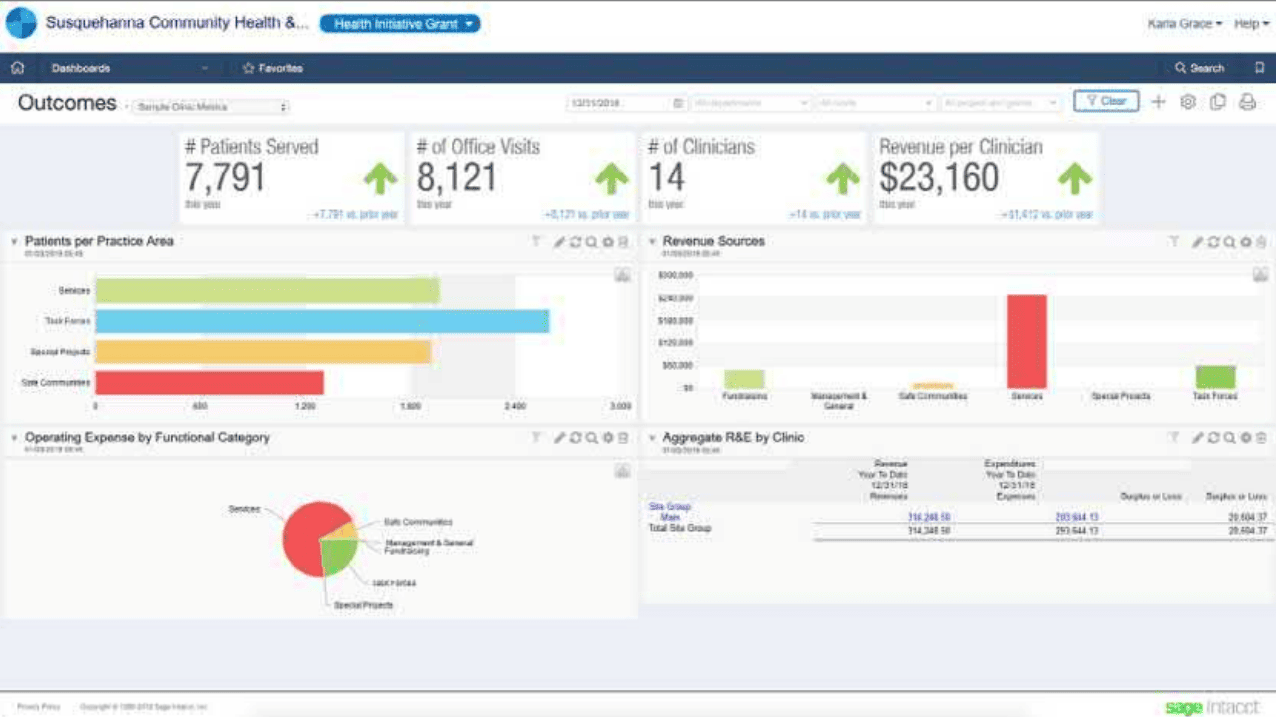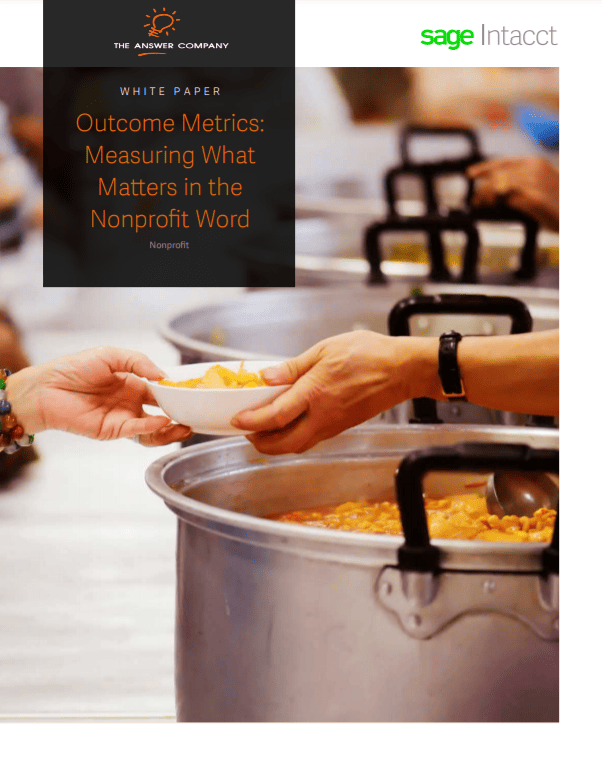Using Outcome Metrics: Track Nonprofit Impact and Drive Social Change
Nonprofit organizations play a crucial role in serving their communities. To truly make a difference, they need to measure their impact. That’s where outcome metrics come in. By defining clear, measurable outcomes and tracking progress towards achieving them, nonprofits can demonstrate their effectiveness, improve their programs, and attract funding from donors and grant-making organizations.
This blog post delves into the depths of outcome metrics, offering indispensable insights on how nonprofits can utilize them to fulfill their mission and achieve transformative outcomes, drawing on insights from “Outcome Metrics: Measuring What Matters in the Nonprofit World,” a comprehensive whitepaper published by Sage Intacct. Download it here
When it comes to software solutions and expert guidance, The Answer Company is a trusted partner you can rely on and we can help you pursue your mission more effectively. Our commitment to excellence, combined with our profound understanding of the nonprofit sector and technology, makes us the go-to choice for addressing your software needs and leveraging outcome metrics to drive your organization’s success.
What are Outcome Metrics?
Outcome metrics are measures that assess the impact of a nonprofit organization’s programs and services on the individuals, communities, or causes they serve. They measure the quality and effectiveness of those activities or services in achieving the organization’s mission and goals. Outcome metrics focus on the results of the nonprofit’s programs and services, rather than the activities or processes involved in delivering them. They are designed to answer the question, “What difference did we make?” by measuring the extent to which the nonprofit’s interventions have improved the lives of its beneficiaries, advanced its cause, or contributed to positive social change.
The Importance of Outcome Metrics for Nonprofits
Nonprofits operate in a unique space where their success is measured not only by their financial performance but also by their ability to create positive change in the communities they serve. Outcome metrics enable nonprofits to measure and report on the results of their programs and activities, providing evidence of their impact on the community they serve. Additionally, outcome metrics help nonprofits track their progress toward their goals and objectives, enabling them to make data-driven decisions about program design and implementation. Nonprofits rely on the support of donors, funders, and volunteers to achieve their mission, and demonstrating impact is essential to maintaining that support.



